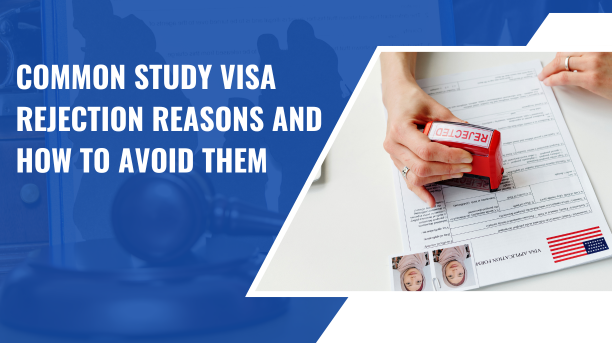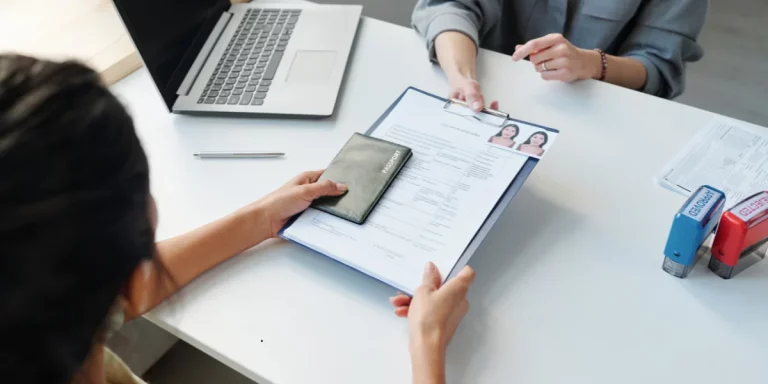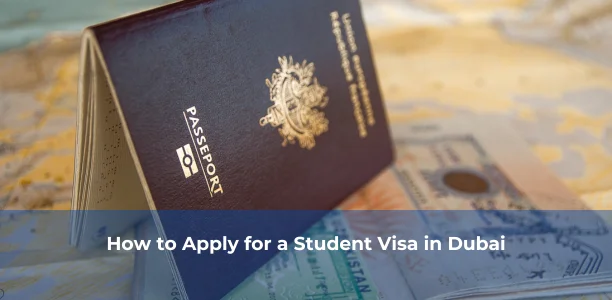
Common Study Visa Rejection Reasons and How to Avoid Them
Why Study Visa Rejections Happen
For many aspiring students, securing a study visa is one of the most critical steps in their journey toward studying abroad. However, receiving a visa rejection can be a significant setback, delaying or even derailing academic plans. Understanding the reasons for study visa rejection is essential to avoid common pitfalls and improve your chances of approval in the future.
In this article, we will explore the most common reasons why study visas get rejected and provide tips on how to avoid these issues during your visa application process.
-
Incomplete or Incorrect Documentation
One of the most common reasons for study visa rejection is the submission of incomplete or incorrect documents. Embassies and consulates require a precise set of documents to evaluate your eligibility for a visa, and any missing or incorrect information can lead to an immediate rejection.
How to Avoid:
- Double-check all required documents: Make a checklist of all necessary documents, including your passport, admission letter, financial proof, visa application form, and any additional country-specific documents.
- Submit clear and accurate copies: Ensure that all the documents you submit are clear, legible, and up to date. Double-check names, dates, and other important details for accuracy.
-
Insufficient Financial Proof
Visa officers need to see that you have sufficient funds to cover your tuition, living expenses, and other costs during your stay abroad. Many study visa applications are rejected due to inadequate or unconvincing financial documentation. If you cannot prove that you have the necessary funds, your application is likely to be denied.
How to Avoid:
- Provide detailed financial proof: Submit clear and comprehensive financial documents, including bank statements, scholarship letters, sponsorship letters, or proof of education loans. Ensure that these documents cover the required amounts for tuition and living expenses as specified by the country you are applying to.
- Explain unusual financial situations: If you have an unusual financial situation, such as a lump sum deposit, include an explanation to avoid raising any red flags during the evaluation process.
-
Lack of a Clear Study Plan
Another common reason for study visa rejection is the inability to present a clear and logical study plan. Visa officers want to understand why you chose the particular country, university, and program, and how it aligns with your future career goals. If your plans seem unclear or lack purpose, your application may be rejected.
How to Avoid:
- Write a strong Statement of Purpose (SOP): Clearly explain why you chose your program, how it fits into your academic and professional goals, and why you chose this specific country for your studies. Make sure your SOP is well-written, honest, and aligns with your long-term plans.
- Be prepared to discuss your plans during the visa interview: If a visa interview is required, be ready to explain your study plans confidently and clearly.
-
Weak Ties to Your Home Country
Visa officers need to be convinced that you plan to return to your home country after completing your studies. If they believe you intend to stay in the country illegally or extend your stay without proper documentation, your visa will likely be rejected. A common reason for rejection is the failure to demonstrate strong ties to your home country.
How to Avoid:
- Show strong ties to your home country: Include documents that demonstrate your ties to your home country, such as family, property, or a job offer waiting for you after your studies. This shows that you have a reason to return after completing your education.
- Discuss your post-study plans: In your visa interview or SOP, explain how your education abroad will benefit your career back home, reinforcing your intention to return.
-
Poor English Language Proficiency
Many countries require international students to meet specific English language proficiency standards, typically demonstrated through standardized tests such as IELTS, TOEFL, or PTE. If your test scores do not meet the required minimums, your visa application could be rejected.
How to Avoid:
- Take your language test early: Ensure you have enough time to study and take the test again if needed. Achieving the required score is critical to avoid visa rejection.
- Submit valid test scores: Make sure your test scores are up to date and meet the specific requirements of the country and institution you are applying to.
-
Inconsistent or Unconvincing Study Intentions
Visa officers look closely at your study intentions to determine whether you are genuinely planning to study abroad. If there are inconsistencies in your application—such as discrepancies in your academic background, unclear reasons for choosing the country or program, or doubts about your intentions—you risk having your visa rejected.
How to Avoid:
- Align your academic background with your study program: Ensure that your chosen program is relevant to your previous academic qualifications or professional experience. If you are changing fields, explain the reason clearly in your SOP.
- Be clear and consistent: Ensure that all parts of your application, including your SOP, financial documents, and visa interview answers, tell a consistent story about your intentions to study abroad.
-
Inadequate Health Insurance
Certain countries, such as Australia, Canada, and the United States, require international students to have health insurance coverage for the duration of their stay. Failure to provide proof of valid health insurance may result in a visa rejection.
How to Avoid:
- Purchase the required health insurance: Research the specific health insurance requirements of your study destination and purchase the appropriate plan before submitting your visa application. Provide all necessary documentation to prove you have valid coverage.
-
Poor Performance in the Visa Interview
The visa interview is often the final step in the visa application process, and poor performance can result in a visa rejection. If you appear unprepared, provide unclear or inconsistent answers, or fail to demonstrate your study intentions, the visa officer may deny your application.
How to Avoid:
- Prepare for common visa interview questions: Practice answering questions about your study plans, financial situation, and future goals. Be clear and confident in your responses.
- Dress professionally and stay calm: Your appearance and demeanor matter. Dressing appropriately and maintaining a calm, confident attitude will help you make a positive impression during the interview.
-
Previous Visa Rejections or Immigration Violations
If you have previously been denied a visa or have any history of immigration violations, this could negatively impact your current visa application. Visa officers will look into your immigration history, and any red flags can result in a denial.
How to Avoid:
- Be honest about previous visa rejections: If you have faced a visa rejection before, address it in your application or during the interview. Be transparent and explain the reasons behind the previous rejection.
- Avoid violating visa rules: Ensure that you always comply with visa rules and regulations in your current or past applications. Violations can have long-term effects on your immigration status.
Reyna Overseas: Your Trusted Partner for Study Visa Success
At Reyna Overseas, we specialize in helping students navigate the complexities of the study visa process. With over a decade of experience and a team of 50+ experts, we are one of the leading study abroad consultants in Ahmedabad, providing comprehensive visa guidance, from document preparation to visa interview coaching. Our services also include career counselling and IELTS/PTE coaching (both online and offline) to ensure that you meet all visa requirements.
Contact Reyna Overseas for Study Visa Assistance
Avoid the common pitfalls that lead to study visa rejection by working with the experts at Reyna Overseas. Contact us today to get personalized guidance and support throughout your visa application process, ensuring a smooth and successful outcome.




